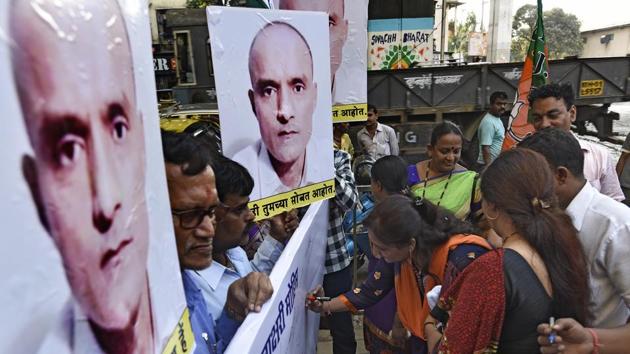Focus on Kulbhushan Jadhav, but India dumps and forgets its ‘spies’ in Pakistan
Many Indians accused of being low-level informants stew in Pakistani jails, disowned by their own government.
Over the past four days, India and Pakistan have traded punches over the death sentence handed out to Kulbhushan Jadhav, an Indian citizen who Pakistan accuses of being a spy for the Research and Development Wing (RAW), an allegation he, his family, and the Indian government have all denied.

Jadhav, a former Indian naval commander has been working out of Iran since 2003 and was accused of espionage in the Pakistani state of Balochistan in March 2013.
As a former officer, Jadhav has received a considerable amount of attention from the government and the Indian media, all rallying for his release.
“We will do whatever it takes to ensure Jadhav’s release. If needed we will take the issue to international fora,” said Rajnath Singh, India’s home minister.
There have been a number of discrepancies about Pakistan’s handling of the case. Jadhav has been denied consular access, a clear departure from international practice and Pakistan has only furnished a confessional video as evidence.
While Jadhav’s case is attracting national and international attention, many Indians who have served their country as spies have suffered imprisonment and torture in Pakistan before being sent back home, and struggle to get a hearing.
The Punjab border districts of Gurdaspur and Ferozepur are replete with examples of men who crossed the Indo-Pakistan border for tidbits of intelligence for their handlers. Most of these men are captured by Pakistani security forces and end up languishing in jail for years. Because most are disavowed by their governments, they’re subject to extremely archaic forms of torture.
Many are impoverished men who are recruited as low-level informants for multiple Indian intelligence agencies including the R&AW.
In March, I profiled Dadwan village in Gurdaspur, known for producing these informants. Unlike their highly trained counterparts, they’re not valued.
“Even if you escape death and are sent back, in your country you die a slow death as nobody is there to own you,” said Kishori Lal, a former spy in a 2005 interview with the Tribune.
Some cases have seen the light of day. Sarabjit Singh, an alleged informant who was killed in a prison brawl in 2013 and Roop Lal Sahariya, an informant that spent 26 years in Pakistani jails, have received attention.
But largely, these men are sent back through unceremonious prison exchanges at the Wagah border. There is no central database in India or Pakistan with details of who was exchanged.
India is no better at treating such prisoners. The methods of torture are similar and equally brutal. Although we have no data on how prisoners are treated, according to National Records Crime Bureau, between 2010 and 2015, 591 people died in police custody.
So though Indian government and its press fights for the release of Kulbhushan Yadav, it should also spare thought for their men stranded in Pakistani jails.
You can read more about these spies in our weekend story - The Village of Spies.





